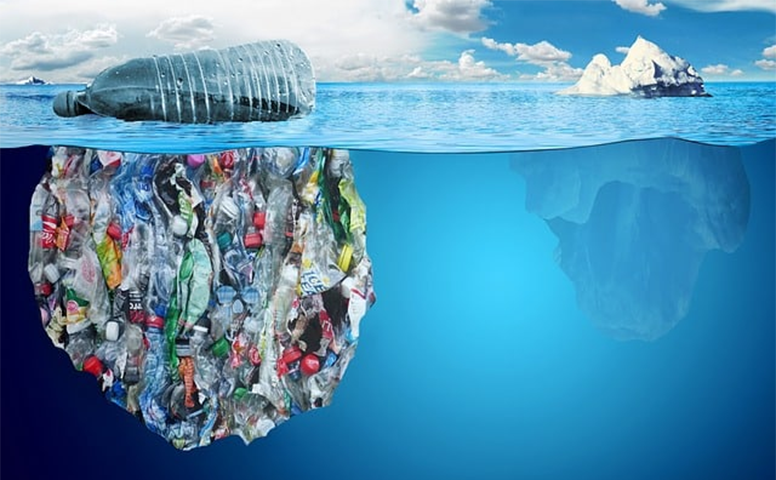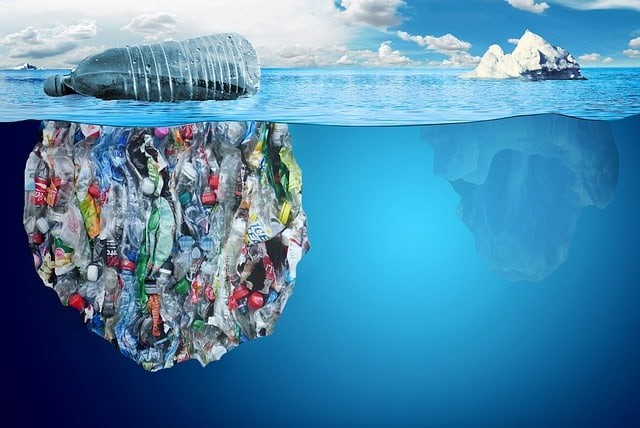15 February 2018
It’s not easy being green
The issue with recycling and alternative materials.
by Frank O’Nomics
I thought it would be an eco-friendly purchase. 3 cases of wine for a family party should involve just glass, metal and cardboard, all of which can be recycled. How wrong could I be? On arrival, the bottles had at least one single-use plastic bag each (there was some “double-bagging” for strength) and several metres of bubble wrap had been used. Like millions of others who have seen the impact of plastic dumping on the environment via the BBC’s Blue Planet, I felt both guilty and incensed. Despite the behaviour of this supermarket, the popular response would appear to be having an impact – Coca Cola has pledged to recycle all of its packaging by 2030 (why so long?), McDonalds by 2025 and Iceland will phase out all plastic packaging from its own brand foods. The Queen has also helped the initiative by banning plastic straws and bottles from royal estates. However, the shifts towards both recycling and an end to plastic usage are not straightforward – recycling is not easy and alternatives to plastic may in fact do more harm.
First of all we need to keep some perspective on how much good we can really do. Part of the problem is that there is not much data on just how much plastic is used globally. We hear encouraging stories of the extent to which plastic bag usage has dropped in the UK, but we still used 2.7 billion in the year to April 2017, and in Europe the figure was 100 billion for 2016. The EU has a target of reducing the annual figure to 46 billion by 2019, but even this is only a small proportion of the estimated global figure of 330 billion. The UK then is just 0.6% of global plastic bag usage. To make matters more complicated, plastic bags only account for 3% of global plastic usage that, despite falls in numbers of bags, is still growing, largely because of the growth of the middle classes of India and China.
None of this means that we should not be trying to do our bit. However, it is not easy. Recycling seems to be yet another example of a post code lottery. Local authorities in Wales manage to do a great deal of sorting at the roadside meaning that a high proportion of what is left out is recycled. In Greater Manchester however very little of what is left out, beyond tins and bottles, gets recycled. The problem seems to stem from mixed local market appetites for recycled plastic and a lack of technology in some areas. In Manchester the machines can only detect bottles, and packaging using more than one polymer cannot be sorted. On a national scale such issues were addressed by sending our plastic to be recycled elsewhere, largely to China. However, China has now decided that it no longer wants our 500,000 tonnes of plastic waste and, while other Asian nations will take some, a lack of appetite domestically means that we are faced with stock-piling, incineration or landfill.
If recycling is so difficult then surely the use of alternatives – cotton bags, bioplastic wrapping and bamboo coffee cups – is the answer. Again there are major issues. If we adopt a policy of selling all fruit and vegetables loosely, it will not last as long and we see either a significant rise in wastage, rising prices, and/or a shift to less healthy tinned options. Using plant-based alternatives to oil-derived plastics also causes problems in that it requires a significant amount of land which could otherwise be used for food production. Producing the alternatives to the plastic used by Europe each year would involve dedicating one tenth of the total land under cultivation to this purpose. The dilemma does not end there – given that carbon emissions from biodegradable plastics have 20 times the potency of C02.
The shopping bag issue is similarly fraught. When heading out for our weekly shop we go armed with a pile of cotton bags, but when Defra compared such bags with their plastic rivals they found that they needed to be used 173 times before they were responsible for fewer carbon emissions, given the amount of water and fertilizer needed in their production. Further, the run-off of fertilizers used is thought to have a more detrimental effect on our seas than plastic.
The situation is not entirely bleak when one looks at the potential for recycling. There has been widespread reporting of the UK considering the adoption of the Norwegian policy for plastic bottles, where a deposit of 10-25p is paid and then, when the empty is placed in a machine, a bar code is produced as a discount off the next purchase. As a result Norway now recycles 97% of bottles, compared to just 50% in the UK. Even the 3% that is not recycled is estimated to generate $1 million in lost deposits. There is no reason why the initiative could not be expanded to most foods; many countries have a similar initiative for cans and all it would need is a shift towards standardising containers.
It is very easy to say that the environmental issues caused by the use of plastics is something that we can do little about, given that we generate such a small portion of the problem. However, any improvement is worth making and we can have a big influence on the rest of the world. Using alternatives to plastic drinking straws and buying glass bottles will help, as will reusing water bottles (which Costa, Starbucks will now refill for free). Germany, the Nordic countries and some states in the US and Canada are making genuine efforts to reduce the amounts that are not recycled and, as this impacts on global producers via regulation and public pressure, there is some hope that the amounts clogging our seas will in time be reduced. We should look to join them in such initiatives.



